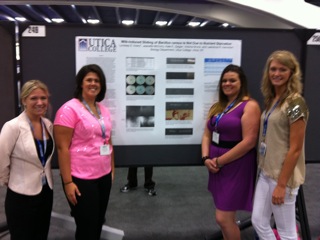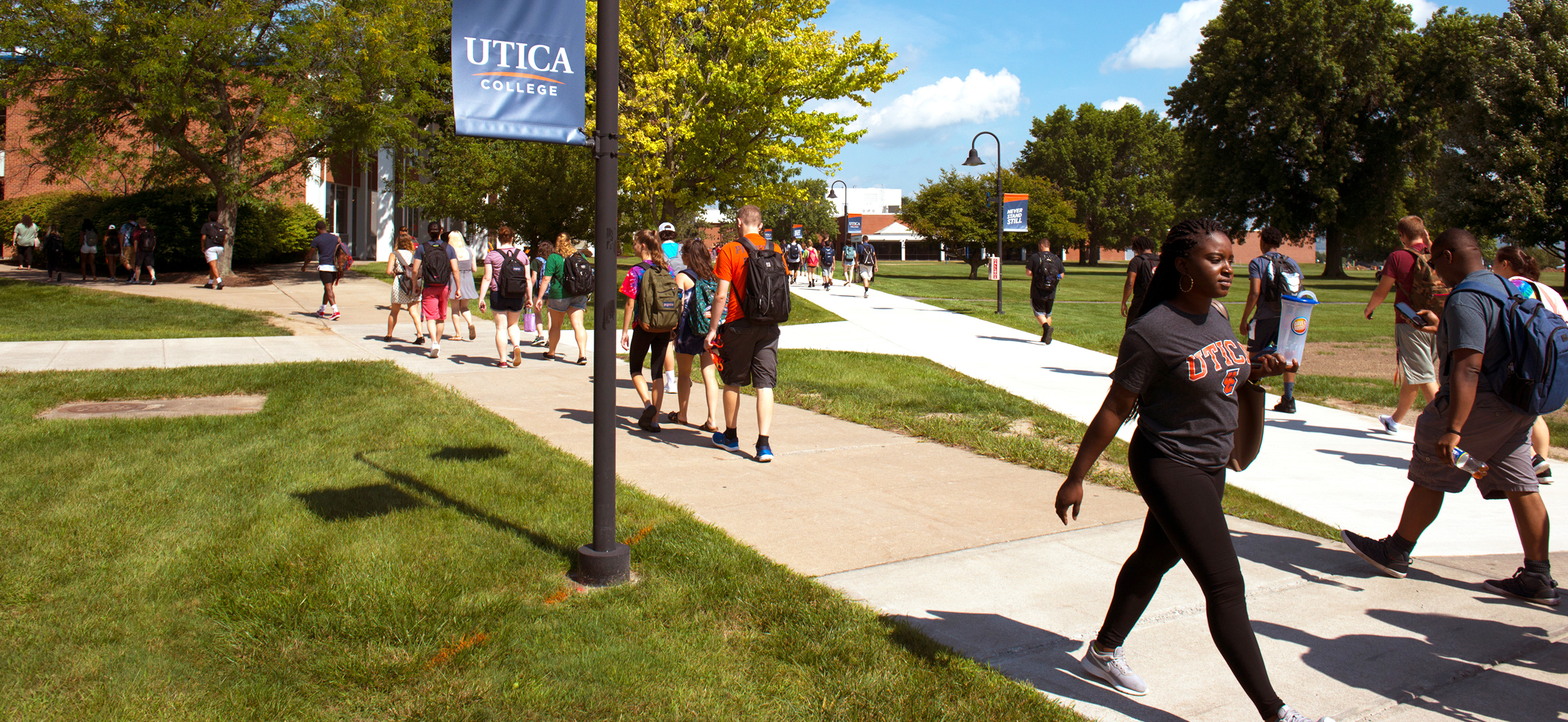
Analysis of the Effects of the Major Components of Bovine Milk on Induction of Sliding Motility in Bacillus cereus.
K. E. ZEIGLER, L. E. AVERY, L. R. AARONSON;
Bacillus cereus is a motile Gram-positive, rod-shaped spore-forming bacterium that dwells in soil. It also causes gastrointestinal disease as a contaminant in unpasteurized dairy products. When grown on solidified nutrient-rich media, these bacteria exhibit swarming activity, a type of high-energy motility facilitated by the hyperproduction of flagella. When the bacteria are introduced into a nutrient-deprived environment, they fail to produce flagella in an effort to conserve energy while searching for nutrients. On bovine milk agar, B. cereus exhibits distinctive sliding motility, characterized by elaborate dendritic outgrowths from the central mass of the colony. Recent data in our laboratory showed that the addition of 1% glucose to milk agar does not suppress the sliding behavior, contradicting the idea that sliding is the result of a starvation effect. This suggests that one or more components of milk stimulate sliding motility in B. cereus. To test this hypothesis, B. cereus 14579 was grown on tryptone agar plates supplemented with each the major components of milk including calcium, potassium, lactose, vitamin D, and lactoferrin with concentrations equivalent to that in whole milk. Plates were inoculated with B. cereus using sterile toothpicks, incubated at 30oC, and examined after 24 hr and 48 hr incubation. B. cereus did not exhibit sliding behavior when grown on any of these single constituents of milk. Dense concentric growth with smooth
echinulate edges was observed on all plates. In none of the cases did B. cereus colonies exhibit dendritic growth. Instead, growth patterns indicated swarming motility. These results show that individual major components of milk
do not induce sliding motility in B. cereus. Future studies will explore whether combinations of these components act synergistically to induce sliding. In addition, whole milk will be fractionated by HPLC to determine if one or
more minor milk components induce sliding motility.

